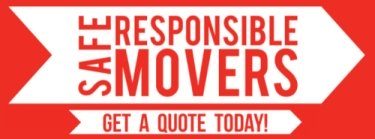Due to the ongoing Covid-19 Pandemic, predicting what the real estate market will look like in the near future is all but impossible. What is clear, however, is that unemployment is spiking to record highs. So with less people in the labor force and everyone facing an uncertain economic future, a lot of people are low on cash at the moment.
That’s where short sales come in. Basically, a short sale is a maneuver that homeowners can use to avoid foreclosure. In a short sale, the seller offers the property for a price that is less than the remaining balance on the mortgage. As long as your bank or lien holder agrees to this, doing a short sale will eliminate your remaining payments.
So if you are unfortunate enough to be in a position where you can’t afford your current mortgage payments, you may want to consider a short sale.
However, if you go the short sale route, moving out of your current home can be a tricky issue.
Moving Out Before a Short Sale
Many sellers prefer to make the move prior to the sale. The reason for this is pretty simple. Selling a property at a loss and having your debts settled at less than their original value can be a negative mark on your credit. But according to most experts, the negative impact isn’t what it once was. Still, if you have the cash on hand to keep current with your mortgage during the sale as well as put a deposit down on your next apartment, this is often a good option.
Moving prior to selling allows you to move at your own pace. This makes it much easier to schedule movers and take care of other necessary loose ends.
Moving Out After a Short Sale
If you’re really worried about your credit hit or your cash flow, moving out once the sale is completed might be your best option. Oftentimes, in fact, it’s your only option, regardless of your finances.
That’s because many lien holders and banks won’t agree to a short sale if the home is left vacant for any period of time. Vacant homes are much more likely to be damaged, vandalized, or simply not kept up to community or municipal standards. That’s why vacant homes are also much more expensive to insure.
The problem with this option is that you’re moving schedule isn’t up to you. You need to schedule your move on a date you can be sure the sale will already be finalized, which isn’t always easy to predict.
Whichever route you choose, of course, you can’t go wrong with hiring Safe Responsible to make your move as painless as possible!
Safe Responsible Movers – Short Sale Moving – Get a Quote!
Featured photo via Nyttend / Public domain

